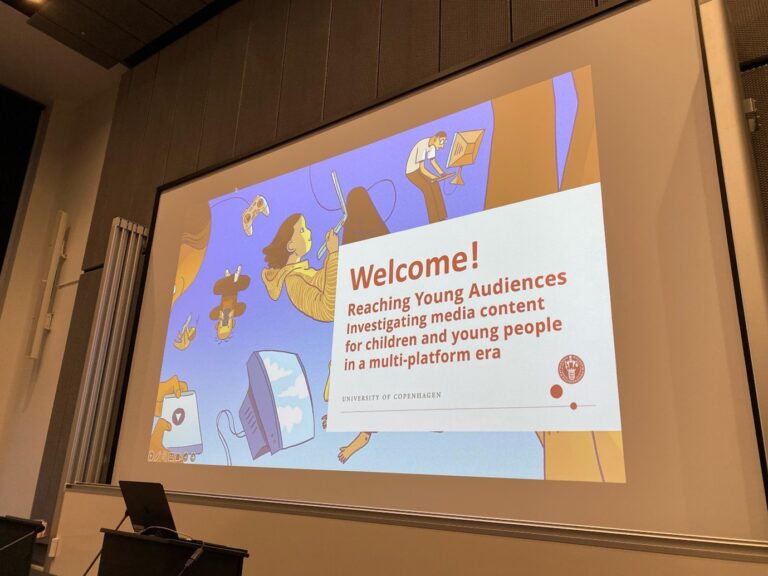Reaching Young Audiences Conference
Izzy Fox, December 15 2023
The Reaching Young Audiences conference (9th-10th November 2023) at the University of Copenhagen brought together academics and creative industry professionals working on and researching the “production, disruption and consumption” of film, TV and other media content for children and young people. Many topics were highly relevant to the GEMINI project. These topics included the changing nature of the platforms on which content is created and distributed, the impact this has on how media is consumed by young people, as well as the different priorities and possibilities for the development and distribution of media content for young people across different political and cultural jurisdictions.
Each morning began with a keynote speech, delivered on the first day by Noel Brown, Associate Professor in Film at Liverpool Hope University in the UK, followed on the second day by Associate Professor Anna Potter, who is based at the School of Business and Creative Industries, University of the Sunshine Coast, Australia. Brown’s keynote traced the development of the trope of the ‘happy ending’ in children’s film, including its many diverse iterations in the 21st century, while Potter’s address was concerned with the impact of changes in Australia’s cultural policies on the media content produced for young people, particularly in light of the growing popularity and power of streaming services.

Image by Eva Novrup Redvall (2023).
Both conference days consisted of two panels on each day, which were followed on Thursday by a roundtable discussion on the trends and challenges in film and TV for young audiences, while the panels on Friday ran either side of the industry session on Danish children’s film and television. The methodologies adopted by researchers, presented across both days, included focus groups, interviews, workshops and surveys, which were conducted with a mixture of media creatives, educators, young people and parents.
Some of the takeaways from both days were, firstly, the neglect of content created for young people, outside of the animation industry, across many contexts; the importance young people place on humour even in drama series; the tension between a desire for locally produced films and TV series to which young people, especially teens, can relate, and a rejection of much of what is currently produced at a local level; the challenges and opportunities of creating content in minority languages; teenagers’ interest in seeing diversity represented on their screens, albeit in a naturalised way rather than a didactic one; the popularity of English language film and TV, particularly originating in the US and the UK, in non-English speaking countries; the dearth of investment in public service broadcasting, often as a consequence of neoliberal policies; as well as a lack of access to youth-oriented media, particularly in the Global South.
Finally, the importance of centring young people, either as research subjects or as creative media content creators, or as both, informed the research that was presented throughout the two days of the conference, including the presentation “Gender equality through young adult serial drama” by members of the GEMINI research project team.


